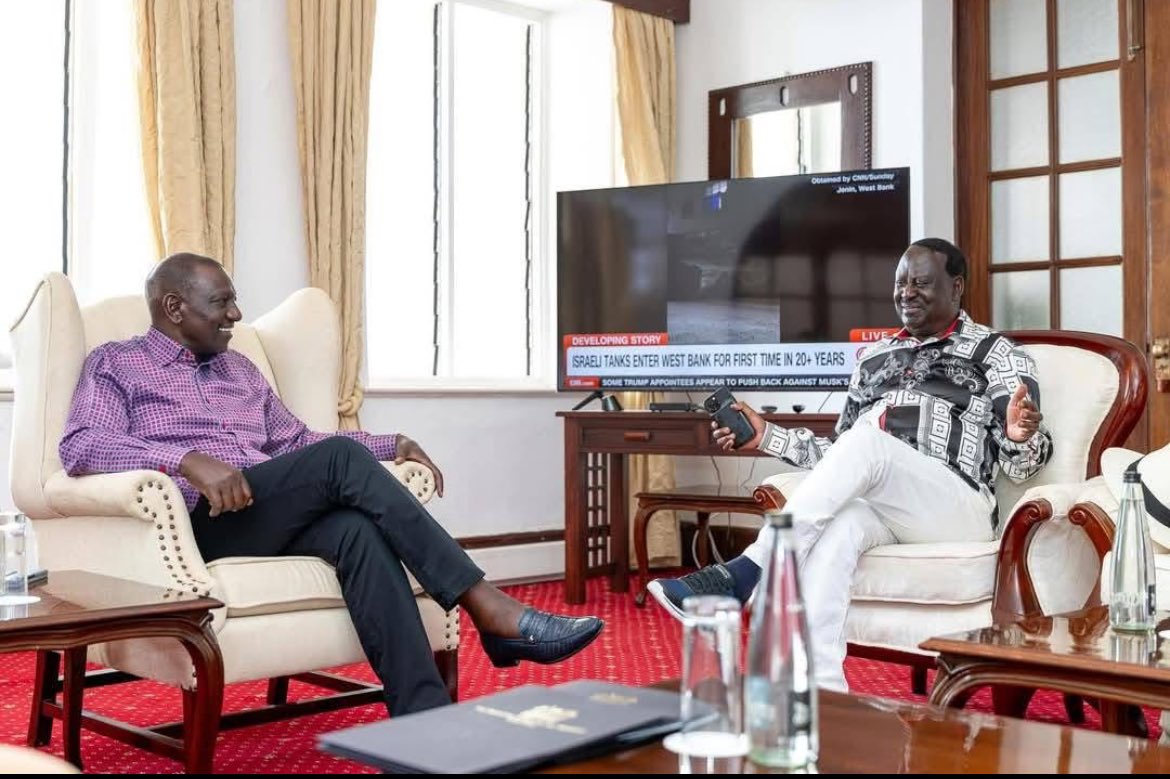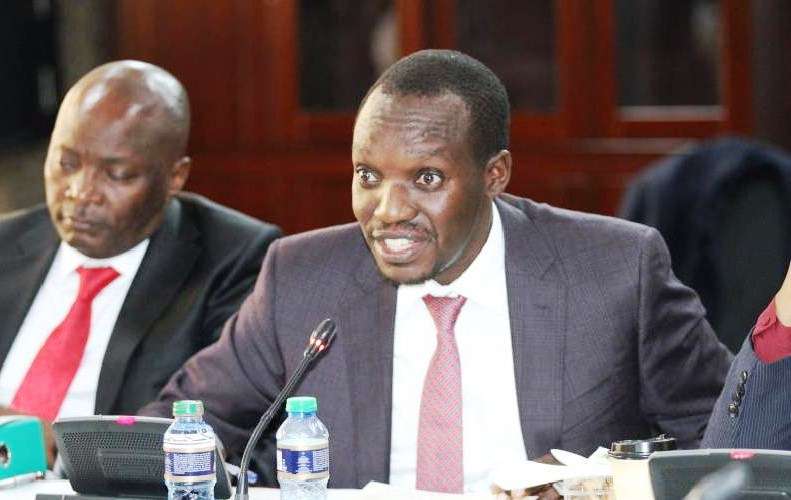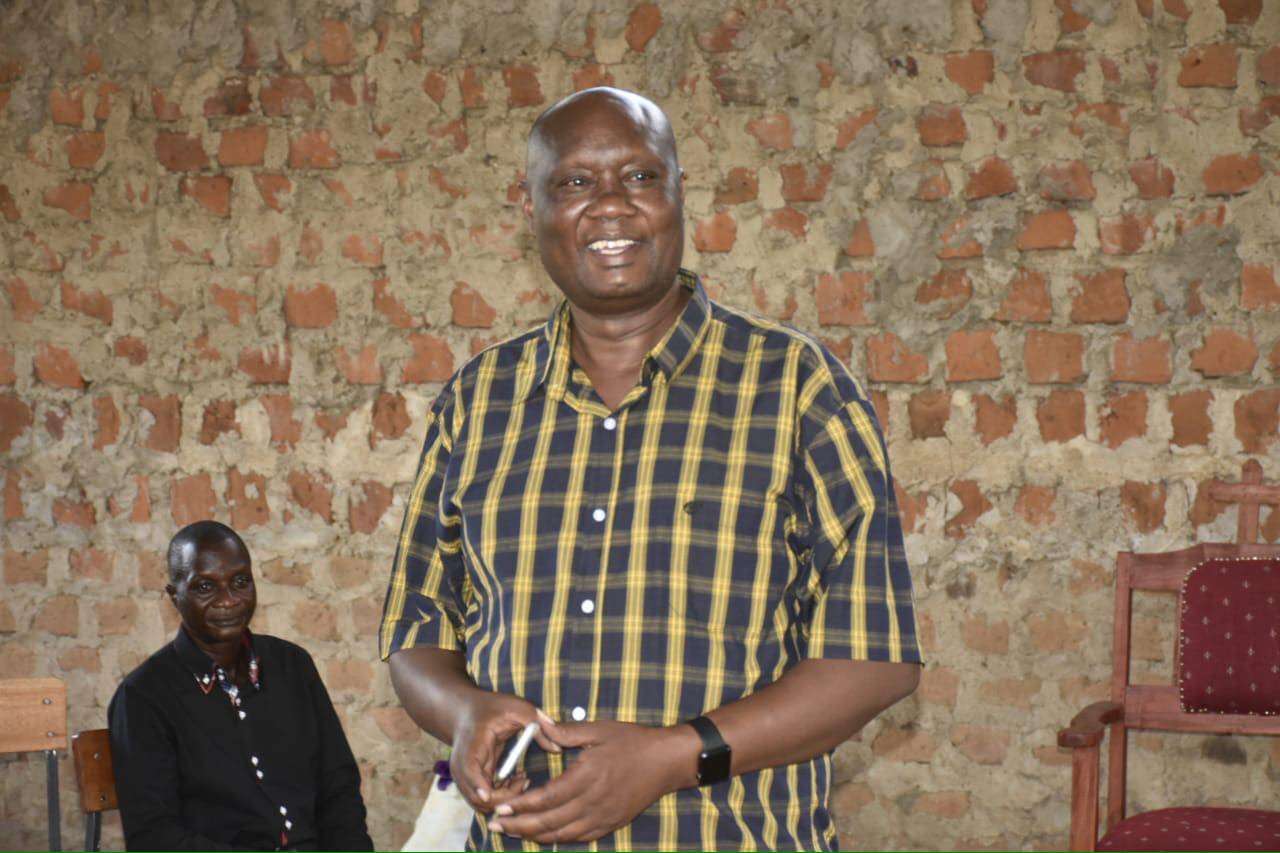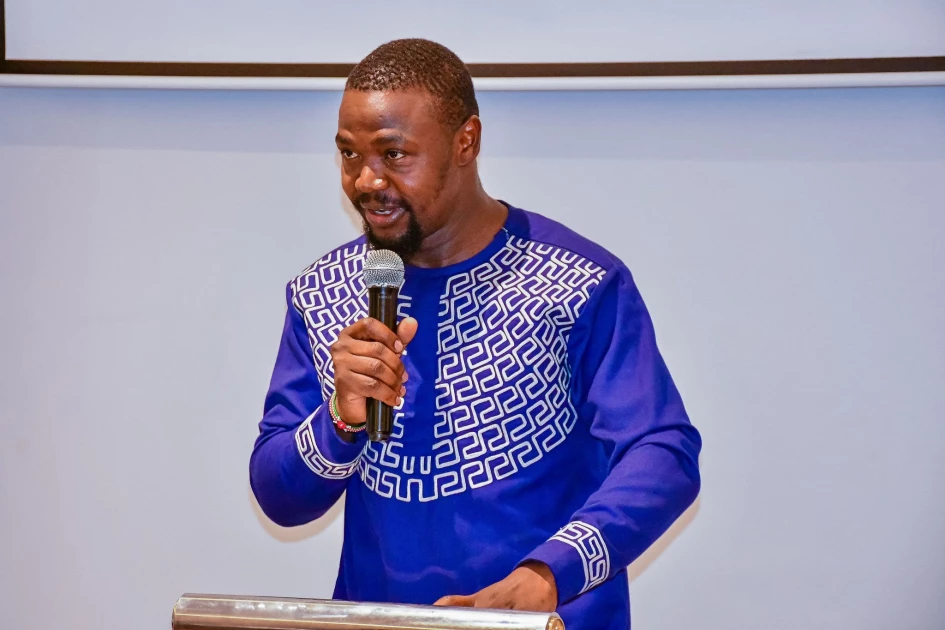TWV Political Desk
President William Ruto has firmly brushed aside ODM leader Raila Odinga’s proposals to convene a national dialogue forum (conclave) and compensate victims of police brutality, signalling widening cracks in their recent political détente.
To unlock the full article:
Choose one of the options below:
- Ksh 10 – This article only
- Ksh 300 – Monthly subscription
- Ksh 2340 – Yearly subscription (10% off)
Raila, during recent public addresses, including the Madaraka Day celebrations in Homa Bay, urged the President to authorise reparations for individuals harmed or killed during police crackdowns on demonstrations. He also proposed the formation of a national conclave to unify the country and address the grievances of the disillusioned youth, particularly the Gen-Z demographic.
However, reliable sources within State House indicate that both proposals have been roundly dismissed by Ruto and his inner circle. Instead, the President appears to have opted for a counter-strategy, assigning Interior Cabinet Secretary Prof. Kithure Kindiki to spearhead nationwide engagements with Gen-Z groups, bypassing Raila’s suggestion of a broader political dialogue.
Prof. Kindiki, speaking during a rally in Meru, announced the government’s intention to engage young Kenyans through direct townhall-style meetings, pledging to listen to their concerns without necessarily convening a politically charged conclave.
Political observers suggest Ruto’s rejection of Raila’s initiatives is strategic. Compensation for police brutality victims, most of whom were reportedly ODM supporters, could be perceived as an admission of guilt by the government, an acknowledgement that excessive force was used. Moreover, such a move might inadvertently elevate Raila’s political stature, allowing him to claim moral victory in pushing the state to act.
“The moment the government agrees to pay out compensation, it effectively confirms it used state machinery against its own citizens. That is a dangerous narrative for any sitting president,” said a Nairobi-based political analyst who requested anonymity.
Furthermore, insiders say Ruto views the proposed national conclave as a veiled political manoeuvre by Raila to revive his grassroots mobilisation machinery. Drawing parallels to the 2005 referendum campaign, where Raila capitalised on national debates to form the ODM Party, Ruto is reportedly wary of handing Raila another platform to galvanise public opinion and reassert his influence ahead of 2027.
The President is also said to be concerned that a conclave, while framed as a unifying mechanism, could easily morph into political rallies and anti-government protests, potentially destabilising his administration’s reform agenda.
As it stands, the Head of State has made clear that his administration will not entertain either the proposed national dialogue or financial redress to victims. The two leaders, despite earlier signs of cooperation, now appear to be charting divergent paths, with Raila increasingly vocal on the sidelines and Ruto consolidating his political base.
While Raila and his allies continue to demand justice for those harmed during recent protests, the government is keen to control the narrative, opting for tightly managed engagements and digital policy forums rather than broad-based political gatherings.
Whether this strategy will succeed in quelling dissent or further alienate sections of the public remains to be seen. But one thing is clear: Kenya’s political chessboard remains as active and unpredictable as ever.
[/full]




